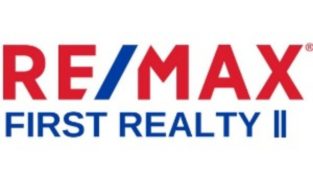The kids have moved out and you’ve got too much space. Once you’ve made the decision to downsize, the next step you need to make is to decide where you want to go and what kind of home you want.
Depending on where you choose to live, you might not actually be saving money.
- A large house in an area with a lower cost of living might could cost as much as a smaller house in an area with a higher cost of living.
- Very often, downsizers want a smaller home but with no less luxury. For example, if your larger home has granite countertops, most downsizers choose to have granite in their next home, and sometimes even use some of the extra cash they have after the sale to upgrade the kitchen appliances as well. Larger master suites are also a common feature downsizers want, and often are willing to sacrifice larger guest suites.
So where should you go? You’ve got a few options to choose from:
 Smaller house –
Smaller house –
- Pros: You retain the most freedom this way – you don’t need to comply with HOA requirements or age restrictions. A house will probably have more space than any other option, so if a guest bedroom or two is important to you, or if you want a formal dining room, this may be your best bet.
- Cons: Choosing a house means you’ll still have to do the maintenance and upkeep, however, even though it will likely be less time consuming and costly than in a larger home.
 Condominium –
Condominium –
- Pros: Many downsizers choose condos not only because they are significantly less costly than a house but also because maintenance will be done for you. No more shoveling snow or raking leaves is a pretty nice incentive. In many cases, condos are only one story so you can eliminate stairs if that’s an issue. Condo living sometimes comes with sweet amenities like clubhouses, pools, tennis courts, and so on.
- Cons: If you choose a condo, however, don’t forget that you’ll have to pay HOA fees which vary dramatically from place to place.
Rent –
- Pros: Renting can help you to free up some cash, or move to temporary digs while your dream home is being built or while you’re waiting for retirement, renting might be a great option for you. The best part about it is that you are not responsible for upkeep or maintenance – even a clogged drain is fixed for you. Another benefit of renting is that you can stay in the same town without all of the expense associated with owning.
- Cons: The downside, of course, is that you aren’t building equity so it might not make sense financially.
 Active Adult community –
Active Adult community –
- Pros: Active adult communities can be condominiums, cooperatives, single family homes, or even mobile home parks. The benefit of an active adult community is the opportunity to choose a community of people in the same stage of life. Many also offer amenities such as community swimming pools, clubhouses, tennis courts, and so on.
- Cons: Active Adult communities are restrictive – at least one person must be 55 years of age or older. They tend to have strict occupancy rules and can have high HOA costs.
Now’s a good time to contact a real estate professional to start exploring your options!
Earlier posts in the series:


